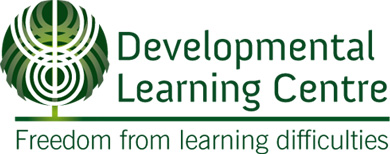What does Learning Difficulties expert Rosemary Murphy have to say?
Rosemary Murphy opened the evening with the burning question on everyone’s minds, ‘What can be done to help my child struggling with learning difficulties?’
She explained the need to look beyond the symptoms to the underlying causes, using the analogy of a learning table – for the table to stand strong, the four table legs underneath must be fully upright. When applying this to learning difficulties the 4 pillars are: spatial orientation; body geography; neurological maturity and sensory processing. Each pillar plays vital role in a child’s ability to learn and we must look at the whole picture to ensure a lasting impact. Rosemary then talked through each learning faculty, explaining its role in the learning process, how to test and the treatments available including Auditory Retraining Therapy or Developmental Movement Therapy.
Rosemary’s 5 key takeaway messages:
- If the child’s “learning equipment” is not working well he cannot learn to his full potential.
- A child first has to learn where his body is in space before he can learn which way the letters go when writing. Poor spatial orientation can be reversed through revisiting early childhood movement patterns, beanbag exercises and painting exercises.
- A cluster of retained primitive reflexes and midline barriers will cause inconsistent learning, poor short term memory, restlessness, difficulty putting ideas onto paper and poor concentration in class.
- A child may have normal hearing but poor auditory processing. Auditory processing is one of the two primary sensory systems for needed for easeful learning. Auditory Retraining Therapy retrains the brain to recognise and rapidly process a wide range of different sounds, and to prioritise speech sounds over background noise.
- Our Developmental Movement Assessment identifies any immaturities in the child’s learning equipment, which can then be remediated using Developmental Movement Therapy.
What does Behavioural Optometrist Keith Miller have to say?
Behavioural Optometrist Keith Miller’s thinking perfectly aligned with Rosemary’s approach. He explained that child learning difficulties are often misdiagnosed and attributed to other problems, when the real source of their difficulties is an underlying vision problem. In the classroom 80% of a child's learning is visual, so it is essential to identify those children with vision problems to ensure the best learning outcomes.
He also made the important distinction between eyesight and vision - patients can have 20/20 eyesight, yet still have vision problems. Unfortunately, most health practitioners providing a standard eye exam do not identify underlying visual disorders because they cannot make the distinction between 20/20 eyesight and vision.
Keith’s 5 key takeaway messages:
- We learn to see; this learning is from movement experience so kids must get off the couch and run/jump/explore and see what happens.
- Vision needs to be well supported (integrated) with the other senses of touch/hearing/taste/smell/body position and body action. This integration should move towards vision being the leading or dominant sense but working and supported by other incoming information.
- Testing with a chart on the wall at 20 feet tells very little about near vision and what we do at our natural near point especially reading tasks. The school vision test is absolutely not enough and is often delaying appropriate vision care.
- A proper eye exam should not only cover eye health and function (seeing), but also eye teaming, eye movements and focussing accuracy at close and far. Sadly many commercial chain optometrists do this testing poorly.
- Vision relies on eye skills (teaming/tracking/focussing) and must to be tested for both quality and endurance. Seeing a word once is not enough; we must be able to repeat the seeing process over and over without effort to cope in our modern high demand classroom or office.
A real story from a parent of the DLC
Finally, we heard from the parent of a student who attended the Developmental Learning Centre, Karen Greenfield. She told the story of how her teenage boy Nathan carried out Auditory Retraining Therapy, bringing most of us to tears when she explained:
“It was like someone has plugged in the other half of my son that was missing before. Before he lived in an anxious dream world, now you can hold conversations with him about everyday things and we can go anywhere we like".
You can read the full story by clicking here.
Do you have a question or feedback?
Why not give one of our friendly team a call on 0800 543 399 or request a free call back here.
For questions regarding disorders with vision, contact Keith Miller at Greerton Visique Optometrist on 07 577 0113.
